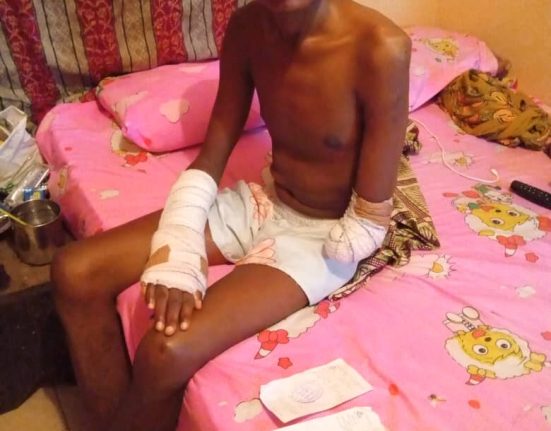A fertility specialist at BridgeClinic, Lagos, Dr. Ayo Olayinka, has revealed that approximately three out of every ten couples in Nigeria are currently grappling with one form of infertility or another, describing the trend as deeply concerning and calling for urgent awareness and intervention across the country.
Speaking at the April edition of the BridgeClinic Forum held in Ikeja, Lagos, under the theme “Navigating Fertility Challenges as a Young Person,” Dr. Olayinka stressed that infertility is more widespread than commonly acknowledged, and often goes unreported due to stigma and misinformation. He explained that many affected couples consider the condition a private burden rather than a broader public health challenge, thus limiting the extent of public discourse and policy action on the matter.
According to him, the figure—30 per cent of couples facing fertility challenges—should not be taken lightly. “That’s a significant portion of the population. When you say three out of ten couples are dealing with infertility, it highlights how urgent this issue is. And the reality is, these numbers may even be higher due to underreporting,” he stated.
Dr. Olayinka identified several lifestyle factors that contribute to the growing infertility rate in Nigeria. He warned that habits such as smoking, excessive alcohol consumption, obesity, being underweight, and poor nutrition all have negative effects on reproductive health in both men and women. He advised Nigerians to embrace healthier habits early in life to improve their chances of conception later on.
Challenging the widespread perception that fertility treatments are a luxury only the wealthy can afford, Olayinka advocated for a multi-sectoral approach to making treatments more accessible. He suggested that government involvement, especially through partnerships with health insurance providers, nongovernmental organisations, and private stakeholders, could help reduce the financial burden of advanced procedures like In Vitro Fertilisation (IVF).
In his address, he also called on religious leaders to take an active role in reshaping public perception on fertility. While he acknowledged the importance of faith and spiritual support, Dr. Olayinka cautioned against relying solely on prayers to address fertility problems. “Prayers should not replace medical intervention. They should go hand in hand. Religious leaders need to encourage their followers to seek medical help when necessary,” he advised.
The fertility consultant emphasised that infertility is not a verdict but a medical condition that can often be treated or managed with the right support and information. He encouraged couples facing difficulties to seek professional guidance and refrain from self-blame or societal shame.
The BridgeClinic Forum continues to serve as a platform for education, dialogue, and support for individuals and couples navigating reproductive health issues. With the rising infertility rate in Nigeria, experts like Dr. Olayinka believe that a combination of awareness, policy intervention, and community engagement is essential to turn the tide.



